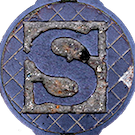Belinda Mo: Difference between revisions
No edit summary |
No edit summary |
||
| Line 1: | Line 1: | ||
{{Participant | {{Participant | ||
|Timezone=America/ | |Timezone=America/Chicago (GMT−06:00/GMT−05:00) | ||
|Affiliation=Viva Translate | |Affiliation=Viva Translate | ||
|Projects=SoftCite | |||
|Table Assignment=Table 3 | |||
}} | }} | ||
{{Workshop Submission | {{Workshop Submission | ||
Revision as of 20:50, 26 October 2022
| Belinda Mo | |
|---|---|
| Timezone | America/Chicago (GMT−06:00/GMT−05:00) |
| Institutional Affiliation(s) | Viva Translate |
| Relevant Projects | SoftCite
|
| Group(s) | Table 3 |
| Table Assignment | Table 3
|
Discord
Page Schemas#Creating a new Schema Page schemas is mostly a handy way to generate boilerplate templates and link them to semantic properties. A Form (using Page Forms is something that is an interface for filling in values for a template.
For an example of how this shakes out, see Category:Participant Template:Participant Form:Participant
- go to a `Category:CategoryName` page, creating it if it doesn't already exist.
- Click "Create schema" in top right
- If you want a form, check the "Form" box. it is possible to make a schema without a form. The schema just defines what pages will be generated, and the generated pages can be further edited afterwards (note that this might make them inconsistent with the schema)
- Click "add template" If you are only planning on having one template per category, name the template the same thing as the category.
- Add fields! Each field can have a corresponding form input (with a type, eg. a textbox, token input, date selector, etc.) and a semantic property.
- Once you're finished, save the schema
- Click "Generate pages" on the category page. Typically you want to uncheck any pages that are already bluelinks so you don't overwrite them. You might have to do the 'generate pages' step a few times, and it can take a few minutes, bc it's pretty buggy.
Workshop Submission
What's your interest in this workshop?
With what "frame" do you approach the workshop? (or identity)?
Tool-builder
What materials can you contribute to the workshop for consideration?
https://github.com/epli-org/epli
Science has produced incredible innovations, yet there is incredible amounts of progress to be made on the scientific process itself. Specifically, scientific knowledge is still spread via academic papers, and people still read them as if they are textual documents that live in your computer, as opposed to interactive elements for querying and collaboration. We hope to change that by building a Chrome extension that uses large language models to make it easier to access the relevant information from a paper.
When looking at papers, researchers often find themselves needing to manually look up the referenced papers in separate tabs and search for the relevant section within them, as the links directly to the papers aren’t usually provided by default. This causes a lot of context switching, and generally increases friction to learn new concepts. To alleviate this, our Chrome extension allows a user to hover over a reference within a paper, and presents a pop-up containing:
- The direct link to the paper - The abstract of the paper - A context-sensitive GPT-3 generated summary of the referenced paper
This allows the reader to quickly understand the relevant concepts within the cited resource, so that they can immediately resume their processing of the current paper. This also reduces the number of clicks steps they will need to go through in order to access that paper if they so desire.
Scientific papers also contain "jargon", and this often forces readers to spend more time than necessary getting up to speed with the language of a paper before they can actually understand the concepts presented within. When our users hover over scientific jargon within a paper, a pop-up will be presented that shows the definition of the piece of jargon, along with links to locations where it’s defined previously. This is similar to jump-to-definition in IDEs, except applied for concepts in a paper.
In the long term, we plan on enabling a commenting system on top of papers, so that users can ask and answer questions on top of papers, while earning reputation for doing so. The features outlined above will be useful for getting initial interest in the product.
A demo of the extension is in the Github repo.
Organizer-estimated Topics
Discovery, Accessibility, Transdisciplinarity, NLP, Machine Learning, Review, Scholcomm
